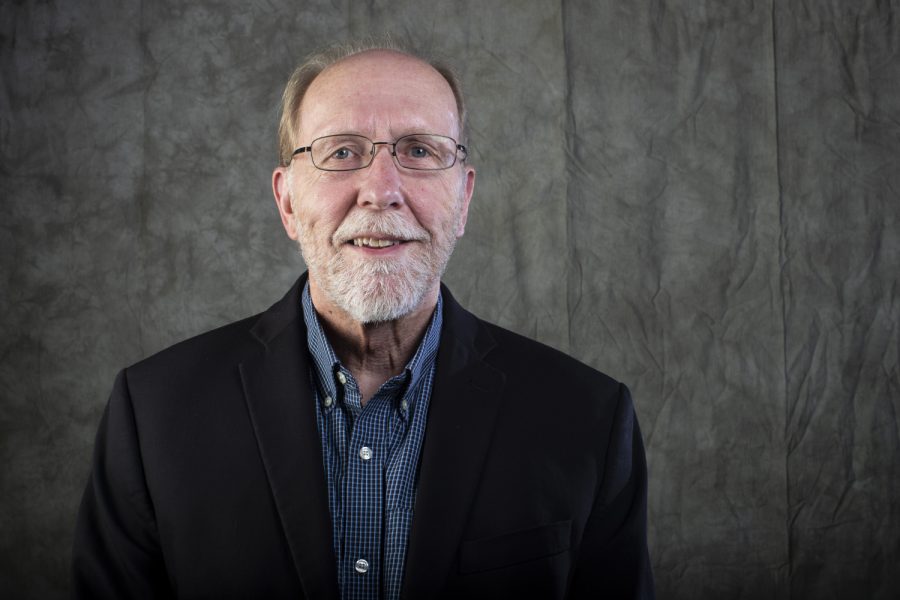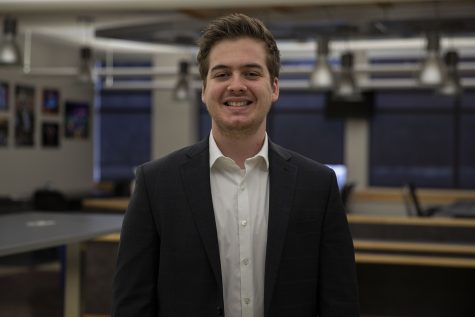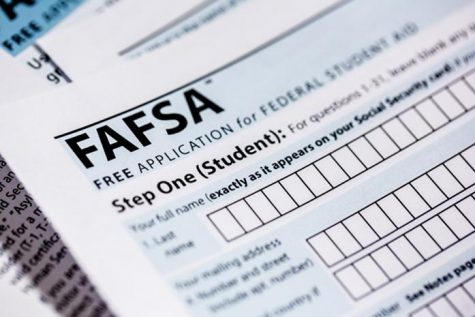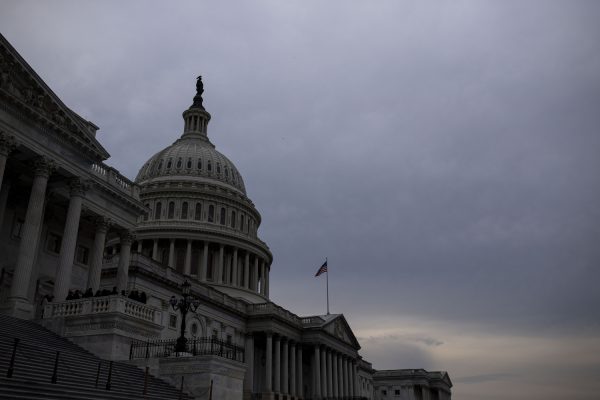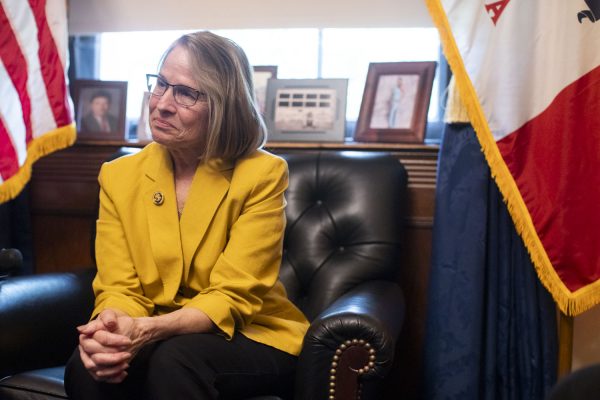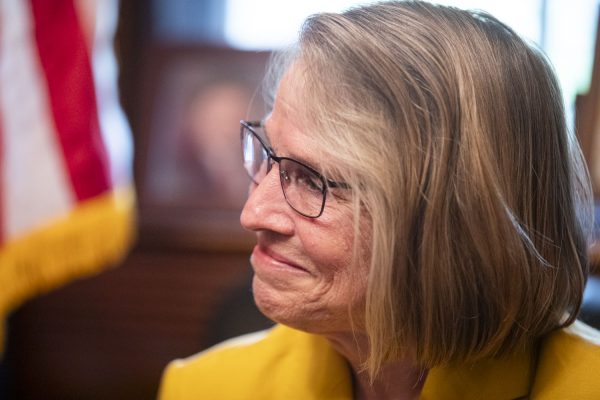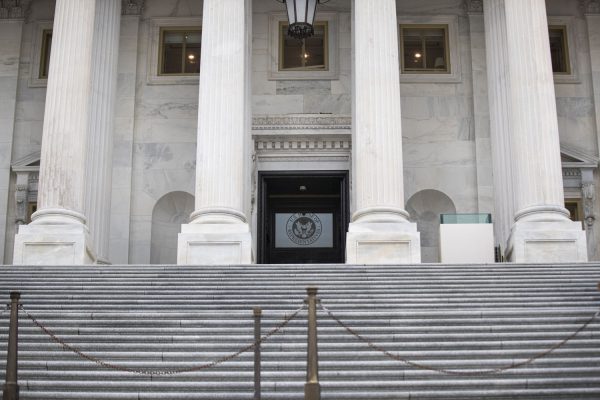Extending opportunity: Dave Loebsack reflects on a career in Congress
After 14 years representing southeast Iowa, Dave Loebsack is retiring from Congress. In an interview with the Daily Iowan, Loebsack looked back on a career of bipartisan solutions and providing assistance to those in need.
Representative Dave Loebsack stands for a portrait at the Daily Iowan newsroom on Sunday, September 23, 2018. (Nick Rohlman/The Daily Iowan)
December 15, 2020
Growing up a stone’s throw away from the crowded stockyards of Sioux City, Dave Loebsack never thought Congress was in his future.
His parents divorced, and he was raised by a single mother who struggled with mental illness, so the family often relied on food stamps and government assistance to get by. In fourth grade, Loebsack’s mother could no longer take care of him and his siblings on her own, and the family moved in with his grandmother.
“Growing up, it was like, ‘What the heck is Congress?’” Loebsack said. “I was friends with the son of the mayor of Sioux City, and even then, I thought, that’s kind of way beyond anything I even knew about or could think about, given how I was growing up.”
Now, the 67-year-old, seven-term Democratic representative for Iowa’s 2nd Congressional District is retiring after 14 years in Congress. In an interview with The Daily Iowan, Loebsack said his upbringing gave him a greater appreciation for the way government can provide opportunities for people to succeed, inspiring him to work to extend those same programs that benefited him to others in need.
“That has really informed a lot of what I stand for, and what I have stood for since I’ve been in Congress,” Loebsack said. “I first ran, and I’ve run every single time, making sure that those who are willing to work hard, take responsibility for themselves, find themselves in difficult times through no fault of their own … that we don’t provide them a handout, that we provide them a hand up.”
His story resonated with voters since his first campaign for Congress, he said. It was the classic story of American prosperity — hard work combined with government opportunities to create success.
Federal programs continued to provide opportunities for Loebsack throughout his younger years. At 16, Loebsack started his first job through a program for disadvantaged youth, working at a sewage plant in Sioux City.
Loebsack’s father died when he was a senior in high school, and Social Security survivor benefits helped him pay for his undergraduate degree at Iowa State University. He eventually graduated with a doctorate in political science from University of California, Davis.
“By coming from that level, growing up he was supported by federally funded projects,” said Ed Cranston, chair of the Johnson County Democrats. “… So really some of the benefits that the government provides to get a hand up, he was able to take advantage of that.”
RELATED: Buttigieg, Loebsack rally for last-minute support in Cedar Rapids
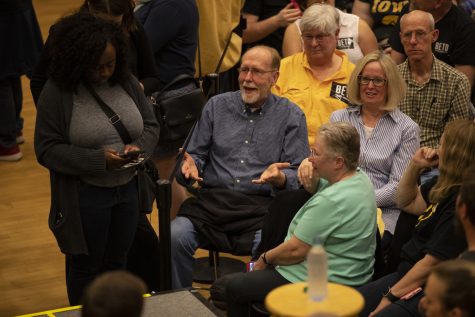
Representing a district that has shifted to the right under his tenure, Loebsack has made a point to work across the aisle. Much of the work he regards as his biggest accomplishments were bills that were introduced with Republicans. The Congressman has attracted some ire from activists for his center-leaning stances, but he said he’s always kept in mind the interests of his constituents.
In his retirement, Loebsack said he’s going to enjoy his time off, and he doesn’t have any specific plans as of now. He and his wife, Terry, have moved back to Mount Vernon, where they lived before moving to Iowa City.
While he has considered going back to teaching, Loebsack said he doesn’t want to do it in a virtual format, which several colleges have resorted to because of the pandemic.
“The first thing is I hope I don’t keep waking up at four in the morning and turning on the news, wondering what the hell’s going to happen today,” he said.
Timeline by Kelsey Harrell/The Daily Iowan
An unlikely candidate
Nobody seriously thought Loebsack would win.
The year was 2006, and the political-science professor from Cornell College had mounted what was by all accounts a long-shot campaign against Republican James Leach, an entrenched 30-year incumbent who was widely popular and had withstood several previous challenges.
While the 2nd Congressional District had been trending Democratic, it was still rated a safe Republican seat by the Rothenberg Political Report (now, Inside Elections). But frustrations with President George W. Bush’s administration and the Iraq War had put Republicans on the defensive nationally. Loebsack’s eventual victory was a major upset in an election that swung the House back to Democrats after 12 years of Republican control.
After getting involved in Democratic Party politics while at Cornell, Loebsack said he had given some thought to running for a seat in the Iowa Legislature. But in 2005, he decided to jump a few steps and run for federal office. His message focused on reining in the Bush administration and bringing Democratic representation to Congress.
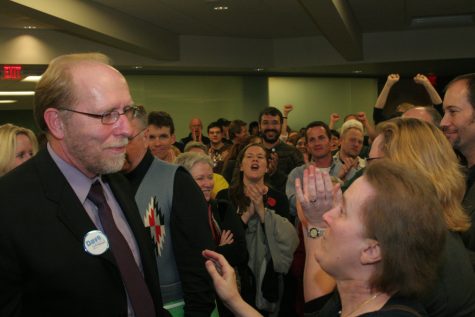
“I decided that as much as I liked Jim Leach, and voted for him a number of times, I thought it was time for a change in our district, and a change in our country,” Loebsack said. “… Most people I talked to at the time thought I was utterly insane. And I might have been a little bit.”
The campaign started small, with “half a dozen people sitting around a living room,” said John Deeth, an election worker at the Johnson County Auditor’s Office and Democratic activist.
The challenge Loebsack faced was to convince enough Democrats — who held a 40,000-voter advantage in the district at the time — to vote for him instead of Leach. Viewed as one of the most liberal Republicans in Congress, Leach consistently won over about 20 to 25 percent of Democrats, Deeth said.
Loebsack credits his success in that election to relentless campaigning, speaking to people in the district and hearing their concerns.
“I just showed up everywhere,” he said. “And I talked about my story, and a lot of people thought that was very appealing, you know, that I could be as successful as I had become at that point as a college professor given my background. So, you know, I convinced enough people it’s time for a change.”
And convince them he did. In the closest election the district had seen in years, Loebsack eked out a win by 2 percentage points, with 51 percent of the vote.
Deeth, who was working in the Johnson County Auditor’s office on Election Day, said he realized the unlikely outcome was imminent as he watched results from Johnson County roll in.
“I remember seeing the first sizable precinct come in, and Dave had jumped 20 points above what the 2002 candidate had gotten,” he said. “And I thought, ‘It happened. The crossover Democrats crossed back.’”
Loebsack only won five of the 15 counties in the district at the time, but the 8,500-vote lead from Johnson County was enough to push him over the edge. The last two Democratic candidates in the district had lost Johnson County by more than 1,000 votes.
A bipartisan representative
Loebsack spoke often about moments he’s worked across the aisle — working with Illinois Republican Rodney Davis on biofuels, partnering with former Republican Iowa Congressman Tom Latham on National Guard readiness centers, and working with Republicans to get rural broadband to farmers. His approach to his work in Congress, he said, was about finding consensus on the issues that matter.
“There are things where we can find common ground, and I think where you can do that is where you should be working,” he said. “Doesn’t matter whether you’re working with a Democrat or Republican whatever the case may be.”
In 2012 — the first time the Iowa portion of the Quad Cities was in the reconfigured 2nd District — Loebsack said he worked on a number of issues with then-Congressman Bobby Schilling, a Republican from Illinois, whose district bordered Loebsack’s. The two worked to eliminate the cap on public-private partnerships at the Rock Island Arsenal and secure funding for construction on the Interstate-74 bridge that connects the two districts.
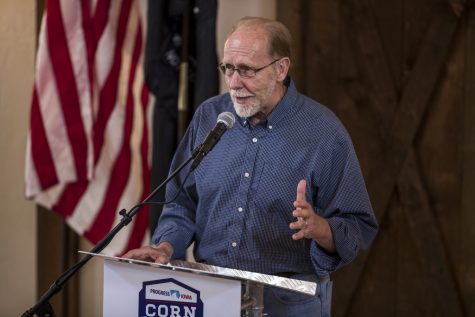
It was an election year, and both Congressmen were facing a challenger from the other side. The partnership raised some concerns from higher-ups in each party, who hoped to see their respective opponents voted out.
“Our respective party committees told us, ‘Quit working with that other guy and getting his name in the newspaper so much,’” Loebsack said. “And we each said to our respective party leaders, ‘We’re not worried about that, what we’re worried about is representing our district.’”
Schilling now lives in LeClaire, Iowa, and was a candidate in the 2020 Republican primary to replace Loebsack. He lost the primary to Republican Mariannette Miller-Meeks, who has run against Loebsack three times in the past.
Schilling said the two put their political disagreements aside to work on projects for their districts. He said he received pushback from Republican leadership for working with Loebsack, but they both ignored the complaints.
“What was nice was he could go to liberal Democrats in Illinois, and then I could go to Branstad and Grassley to kind of get them on board,” Schilling said. “We just did a tag team deal. And we were kind of, I don’t want to say unstoppable, but we were getting things done.”
Loebsack said he’s proud of his work on rural broadband, expanding internet access in rural areas. He wrote a bill with Ohio Republican Bob Latta that passed in 2019 to improve the accuracy of maps used by the Federal Communications Commission to determine where high-speed internet is lacking.
Sandy Dockendorff, a member of the Democratic Party State Central Committee in the 2nd District, said some Democrats have been frustrated with Loebsack over the years for not being a more vocal voice for progressive causes.
One instance was his support for the Keystone Pipeline, which a majority of House Democrats opposed. At the time, Loebsack said his support for the pipeline was based on the 40,000 short-term jobs that would be created by the project.
While he hasn’t been a vocal proponent of Medicare for All or a public option for health insurance, Loebsack has been a strong supporter of other health-care legislation, Dockendorff said. Loebsack cosponsored Medicare for All legislation in 2018, but he isn’t a cosponsor of the current Medicare for All bill in the House.
“So, it’s sort of a mixed bag there,” Dockendorff said. “People have a hard time nailing him down on he’s all bad or he’s all good, because he really is just a mixture of all of it.”
Loebsack said he has to take into account everybody in his district, which is now far more Republican than it was when he was elected. The district has 2,000 more registered Democrats than Republicans, but President Trump won the district in both 2016 and 2020.
“I’m really glad Johnson County is as Democratic as it is, because that’s what helped me get elected in the past,” he said. “But the rest of the district is quite different from Johnson County. And I have to represent all of my district, I can’t represent just one part of it.”
In statements provided to the DI, members of Iowa’s congressional delegation spoke favorably of Loebsack, saying he has been a good partner throughout his tenure.
“Dave Loebsack represents the best Iowa tradition of setting aside partisan and ideological differences when working together for our state,” Sen. Chuck Grassley, R-Iowa, wrote. “I appreciate our strong working relationship and close personal friendship. I wish him well in retirement and he knows he can always call me if he needs anything.”
The closest race in the country
In a dramatic finish to his career in Congress, the election to succeed Loebsack was the closest Congressional race in Iowa since 1916. Miller-Meeks was certified the winner by only six votes on Nov. 30, but Democrat Rita Hart is challenging the results with the U.S. House of Representatives.
RELATED: Dave Loebsack announces he will not seek re-election to Congress in 2020
When Loebsack announced his retirement in April 2019, the race to replace him quickly shaped up to be one of the most competitive in the country. He was initially planning on retiring in 2018, but when Trump got elected, he decided to serve another term to “provide a check on Donald Trump’s worst excesses,” he said.
Miller-Meeks, a frequent opponent of Loebsack, also sees him as someone who can put politics aside and focus on action. She was unavailable for comment, but her campaign spokesperson, Eric Woolson, relayed a story about her visiting Loebsack’s office with a group of ophthalmologists after running against him.
Woolson said Loebsack and his staff went out of their way to eliminate any tension, treating her as any constituent and listening to her concerns.
“It really goes beyond Iowa nice,” Woolson said. “It indicates it’s someone who understands and respects their office, and also the people they represent. Politics is politics and governing is governing.”
Loebsack said he knew this year’s race would be close, but never thought it would come down to a margin as small as six votes. He said he supports Hart’s decision to appeal the results to the House of Representatives.
Iowa Republicans have decried Hart’s response, saying the campaign should have gone through the Iowa judicial system. Appealing the results in the state would have taken the decision to a five-member judicial board, which would have had to certify the results by Dec. 8 — a timeline that both Loebsack and the Hart campaign said would not allow for enough time to ensure a complete result.
Looking back on his career, Loebsack said the thing he enjoyed the most was learning about all the different communities in the district, and meeting with people around the district to take their concerns back to Washington. He was always eager to ask questions while visiting farms, factories, and schools to learn about their needs.
“The thing that I hope people remember about me is that I got around, everywhere in my district, all the time,” he said. “And that I was open-minded and I didn’t talk just Democrats, but I talked to independents and I talked to Republicans, and I did what I could to listen to everybody.”



